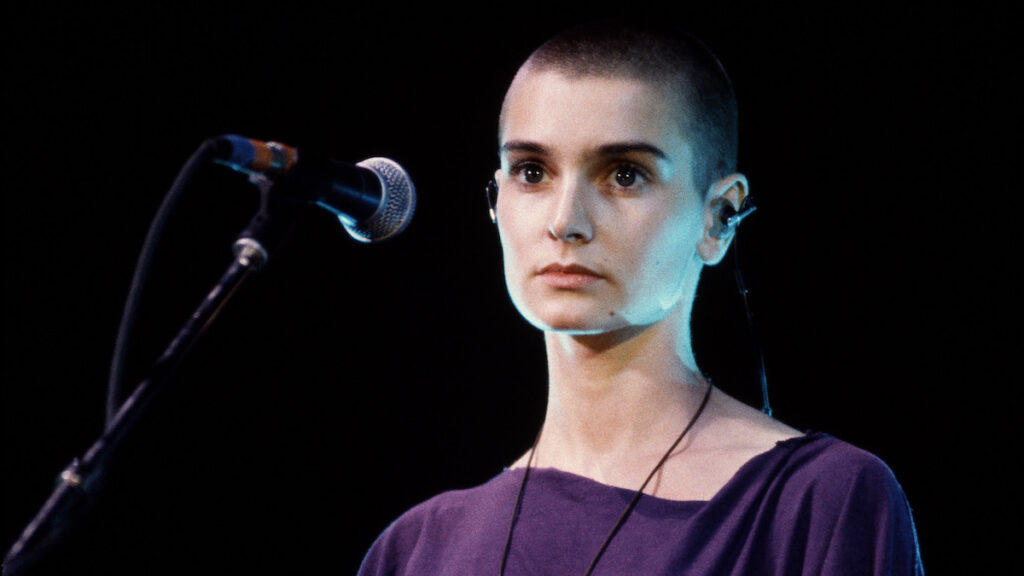Across a tumultuous 56 years, Sinéad O’Connor was subjected to more than her fair share of slings and arrows, but she took all that hell and transformed it into a vast heaven of songs. Across 10 albums and over 30 years of work, she never stopped wrestling with a sense of belonging, from the interconnectedness of lovers to the group politics of nations and religions. Of all her identities, she struggled perhaps the most with her self, a quest reflected in her name changes (first Magda Davitt and then finally Shuhada’ Sadaqat, though she continued to make art under her birth name O’Connor).
From such a rich and jagged life, she lives in the popular imagination as the singer of one great tune, “Nothing Compares 2 U,” the mega-smash hit written by Prince. And she is that, of course, her otherworldly vocals electrically expressing the Purple One’s melody. But O’Connor is so much more than her biggest hit, with a breadth of ideas and sounds that few artists can match.
Following her untimely death at the age of 56, we’ve put together a celebration of those accomplishments. Check out 10 essential songs that best showcase Sinéad O’Connor’s musical artistry.
— Wren Graves
Features Editor
“Mandinka” (The Lion and the Cobra, 1987)
The second single off O’Connor’s debut album, The Lion and the Cobra, was the rousing “Mandinka.” For many, it was this track that first introduced audiences to her wholly unique, wildly versatile voice. “Mandinka,” which was written about an African tribe depicted in Alex Haley’s 1976 book Roots: The Saga of an American Family, splits the difference between the energetic rock of her early career and the left-of-center pop for which she’d become known. And throughout, O’Connor represents every side of her voice — her carnal belts, shimmering head voice, and intimate low end are all on display, marking the arrival of a truly inimitable star. — Paolo Ragusa
“Drink Before the War” (The Lion and the Cobra, 1987)
“Drink Before the War,” another entry from O’Connor’s debut album, is a solemn, seething track that skewers a male oppressor — his insistence on war, his privileged attitude, his refusal to listen, and his personal emotional infrastructure. “Why don’t you go out there and do something useful?” she spits in the final pre-chorus, making it purposely ambiguous whether she’s quoting these tyrants or telling them herself. Across five minutes, O’Connor builds to a boiling point, letting her aching alto ring out with passion and calling to arms all those who have fallen victim to these oppressors throughout their lives. O’Connor was no stranger to depicting a tortured perspective, but on “Drink Before the War,” her anguish transforms into righteous, earth-shattering power. — P. Ragusa

